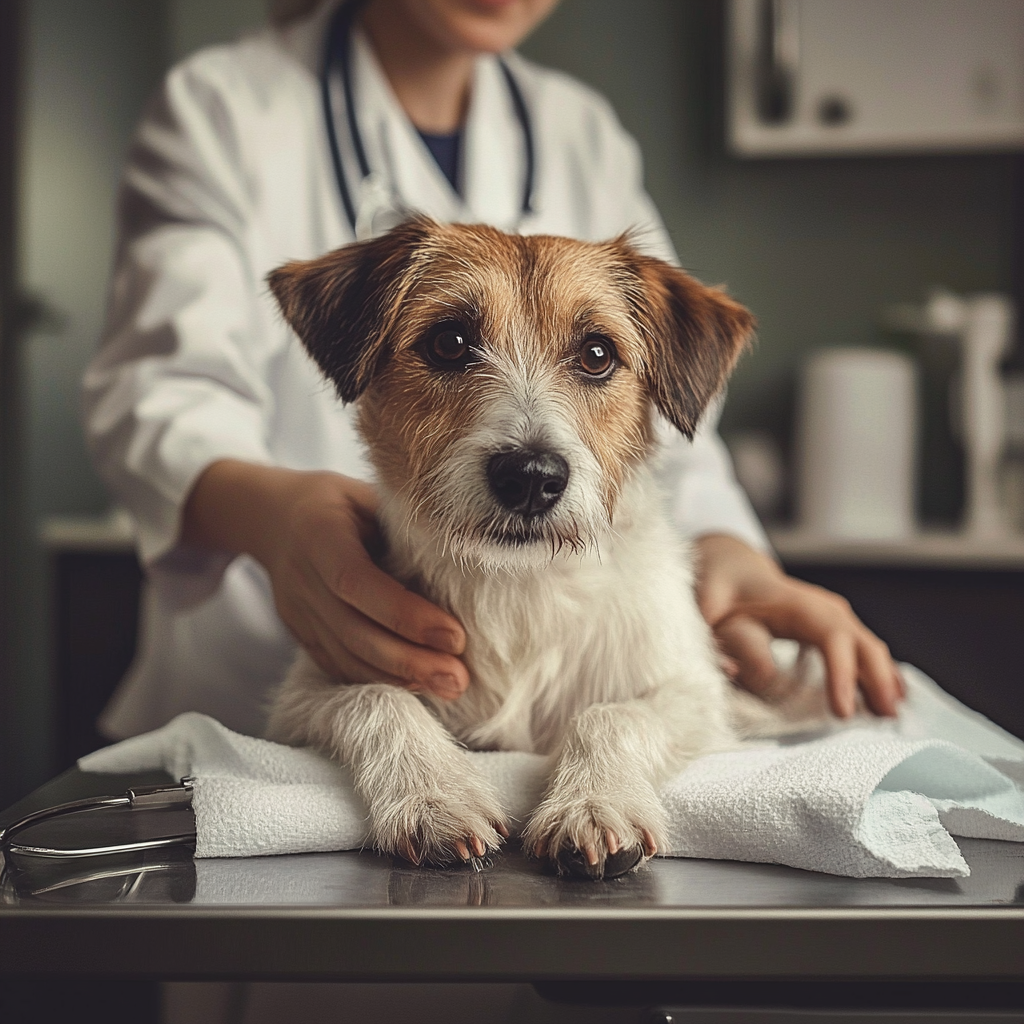
Complete Dog Vaccination Schedule Every Owner Needs
As a loving dog owner, ensuring your furry friend’s health and well-being is a top priority. Vaccinations are one of the most fundamental and effective ways to protect your dog from a range of preventable, and often deadly, infectious diseases. This comprehensive guide from Drools provides you with everything you need to know about dog vaccinations, from understanding core and non-core vaccines to navigating schedules, potential side effects, and important considerations for every stage of your dog’s life.
Vaccinations are part of the larger picture of your dog’s overall health. For comprehensive health tips, check out our dog care guide.
What Is Dog Vaccination?
Dog vaccinations are essential to ensure your pet’s health and longevity. With the right schedule, you can provide protection against severe, often life-threatening diseases.
In India, your animal care professional may mention 7 in 1 or 9 in 1 injection on the vaccination card. These are combination shots that usually cover core diseases like Distemper, Parvovirus, Adenovirus, and others, along with separate rabies vaccine doses as part of a complete dog vaccination schedule in India.
Understanding Dog Vaccines: Core vs. Non-Core
Dog vaccines are categorized into two main types: core vaccines and non-core vaccines. The distinction helps professionals recommend the most appropriate protection based on your dog’s risk factors, lifestyle, and geographical location.
In many Indian clinics, core vaccines are clubbed into a single 7 in 1 or 9 in 1 injection, so you may see those terms written instead of the technical name DAPP/DHPP on your dog’s vaccination card.
Core Vaccines: Essential Protection for Every Dog
Core vaccines protect against diseases that are highly contagious, have severe or fatal outcomes, and are widespread. These are recommended for all dogs, regardless of their lifestyle or location.
Rabies (RV)
Disease: A severe, often fatal viral disease affecting the central nervous system. Transmitted through the saliva of infected animals, typically via a bite.
Symptoms: Behavioral changes (aggression, fear), paralysis, excessive salivation, difficulty swallowing.
Why it’s crucial: Rabies is transmissible to humans and almost always fatal once symptoms appear. Vaccination is legally required in many regions and forms a key part of any dog rabies vaccine schedule.
Canine Distemper (CDV)
Disease: A highly contagious viral disease that attacks the respiratory, gastrointestinal, and nervous systems.
Symptoms: Fever, lethargy, coughing, nasal and eye discharge, vomiting, diarrhea, seizures, muscle twitching, paralysis.
Why it’s crucial: Often fatal, especially in puppies. Surviving dogs may suffer permanent neurological damage.
Canine Adenovirus (CAV-1/CAV-2)
Disease: CAV-1 causes Infectious Canine Hepatitis affecting the liver, kidneys, eyes, and blood vessels. CAV-2 is associated with respiratory disease and supports protection against kennel cough complex.
Symptoms (Hepatitis): Fever, lethargy, vomiting, diarrhea, abdominal pain, “blue eye” (corneal clouding).
Why it’s crucial: Infectious Canine Hepatitis can be severe, leading to organ damage or death.
Canine Parvovirus (CPV)
Disease: A highly contagious and potentially fatal viral disease that targets the intestinal lining and bone marrow.
Symptoms: Severe vomiting, bloody diarrhea, lethargy, loss of appetite, dehydration.
Why it’s crucial: Particularly dangerous for puppies; parvovirus can cause rapid deterioration due to severe dehydration and secondary infections.
In addition to vaccinations, ensure your dog’s comfort by keeping them cool during the summer months. Learn more on how to protect your dog from the heat.
Non-Core Vaccines: Tailored Protection Based on Risk
Non-core vaccines are recommended based on a dog’s exposure risk. Factors like location, lifestyle (boarding, dog parks, training classes), and contact with other animals influence whether these vaccines are necessary.
Bordetella bronchiseptica (Kennel Cough)
Disease: A contagious infection causing inflammation of the upper respiratory tract (often part of kennel cough complex).
Risk Factors: Dogs that frequent boarding kennels, dog parks, grooming facilities, or have regular contact with other dogs.
Symptoms: Persistent, harsh, dry cough, sometimes followed by retching.
Leptospirosis (Lepto)
Disease: A bacterial disease transmitted through contact with contaminated water/soil or urine from infected animals. Can affect kidneys and liver.
Risk Factors: Dogs exposed to puddles, stagnant water, ponds, lakes, wildlife/rodents, and monsoon conditions.
Symptoms: Fever, lethargy, vomiting, loss of appetite, increased thirst/urination, jaundice. (Also a human-risk disease.)
Lyme Disease
Disease: A tick-borne bacterial disease.
Risk Factors: Dogs in tick-exposed regions or those that travel to tick-heavy areas.
Symptoms: Lameness, joint pain, lethargy, fever, loss of appetite.
Canine Influenza Virus (Dog Flu)
Disease: A contagious respiratory virus causing symptoms similar to kennel cough.
Risk Factors: Dogs in social environments (boarding, daycare, shows) where respiratory diseases spread quickly.
Symptoms: Coughing, sneezing, nasal discharge, fever, lethargy, reduced appetite.
Rattlesnake Vaccine (Regional)
What it does: Helps reduce severity of reactions to rattlesnake venom (not a typical infection vaccine).
Risk Factors: Dogs living in or traveling to areas with rattlesnakes.
Benefit: Can buy time to reach a clinic and reduce antivenom requirements.
Ensure your dog receives timely non-core vaccinations. To learn more about creating a vaccination plan, check our guide on vaccines for dogs in India.
The Dog Vaccination Schedule: A Lifelong Protection Plan
A proper vaccination schedule begins in puppyhood and continues with regular boosters throughout adult life. This general schedule is a guideline; your animal care professional will customize it based on your dog’s needs and local disease risk.
Puppy Vaccination Schedule
Puppies receive maternal antibodies from their mother’s milk. A series of vaccinations is used to build immunity as those antibodies reduce over time.
(DAPP/DHPP = commonly called 7 in 1 or 9 in 1 vaccine in India)
| Age / Frequency | Core Vaccines (Required) | Non-Core Vaccines (As Needed) | Notes / Considerations |
|---|---|---|---|
| 6-8 Weeks | DAPP/DHPP 1st dose (1st 7-in-1 / 9-in-1) | Bordetella (oral/intranasal), Leptospirosis (if high risk) | Start early socialisation in safe areas. Avoid public parks. |
| 9-11 Weeks | DAPP/DHPP 2nd dose (2nd 7-in-1 / 9-in-1) | Bordetella booster (if given earlier), Leptospirosis | Continue socialisation. Avoid interaction with unvaccinated dogs. |
| 12-14 Weeks | DAPP/DHPP 3rd dose (3rd 7-in-1 / 9-in-1) | Leptospirosis booster, Lyme, Canine Influenza (if high risk) | Rabies may be given depending on local regulations. |
| 16+ Weeks | Rabies 1st dose + DAPP/DHPP 4th dose (Final puppy 7-in-1 / 9-in-1) | Lyme booster, Canine Influenza booster | Final puppy booster is critical for long-term immunity. |
| 6 Months (Optional) | — | — | Some clinics may do an optional follow-up check. |
| 1 Year After Final Puppy Shot | Rabies Booster + DAPP/DHPP Booster (7-in-1 / 9-in-1 booster) | As per lifestyle | This is the most important annual booster. |
Adult Dog Vaccination Schedule
After completing the puppy series, adult dogs require periodic booster vaccinations to maintain immunity (for dogs older than 1 year).
| Age / Frequency | Core Vaccines | Non-Core Vaccines | Notes / Considerations |
|---|---|---|---|
| Every 1 Year | Rabies Booster | Leptospirosis, Bordetella, Canine Influenza (lifestyle-based) | Rabies booster frequency can depend on state law and vaccine type. |
| Every 1–3 Years | DAPP/DHPP Booster (7-in-1 / 9-in-1) | Bordetella (every 6–12 months), Lyme (annually if needed) | Frequency depends on vaccine brand & guidance. |
| Annually (Lifestyle Dogs) | — | Leptospirosis, Lyme, Canine Influenza, Rattlesnake (regional) | Often needed if dog travels, boards, or plays with other dogs. |
| Senior Dogs (7+ Years) | Continue Rabies & DAPP/DHPP as advised | Non-core vaccines based on health status | Schedule may be adjusted; titre testing may be considered. |
Important Note: Always consult a qualified animal care professional to establish the most appropriate and up-to-date vaccination schedule for your dog. Protocols can vary based on regional regulations and disease risk.
Beyond the Schedule: Key Vaccination Considerations
What if My Dog Misses a Dose?
If your dog misses a booster, do not assume you must restart the entire series. The protocol depends on the vaccine type, number of doses already given, and the time since the last dose.
- Puppies: Missing a dose may leave them vulnerable. Contact your animal care professional to plan the next dose.
- Adults: Core vaccine boosters can often be given right away to restore protective immunity.
- Never delay: Timely vaccination is key. Call your clinic if a dose is missed.
In addition to vaccinations, maintaining your dog’s gut health is equally essential. Check out why gut health is crucial for dogs.
Vaccinating Adult Adopted Dogs with Unknown History
Many adult dogs are adopted with unknown vaccination history. In such cases, a clinic may recommend fresh core coverage (DAPP/DHPP) and rabies, and then continue boosters based on the dog’s age and exposure risk.
Non-core vaccines are recommended based on the dog’s new lifestyle and local risks.
Vaccination for Travel
If you plan to travel with your dog (between states or internationally), vaccination requirements are important.
- Rabies: Usually required for domestic/international travel.
- Timing: Plan early, as some destinations have waiting periods after vaccination.
- Health certificates: Many destinations require a fitness certificate issued shortly before travel.
For a smoother journey, read our holiday travel tips.
Titre Testing: Assessing Existing Immunity
Titre testing is a blood test that measures antibodies for diseases like Distemper, Adenovirus, and Parvovirus. It may be considered for certain dogs (for example, those with previous vaccine reactions). Discuss whether titre testing is practical for your dog with your animal care professional.
Understanding Vaccine Safety & Potential Side Effects
Vaccines are overwhelmingly safe and effective, but mild side effects can occur.
Common, Mild Side Effects
- Slight fever
- Temporary lethargy or decreased appetite
- Pain or swelling at the injection site
- Sneezing or mild coughing (more common with intranasal vaccines)
These usually resolve within 24-48 hours.
More Serious Reactions (Rare)
- Facial swelling (around eyes or muzzle)
- Hives (itchy welts)
- Vomiting or diarrhea
- Difficulty breathing
- Collapse
If you notice these signs, contact a qualified animal care professional immediately.
Common Vaccination Misconceptions Debunked
- “Natural immunity is better.” Natural infection can be deadly. Vaccines build protection without the full disease risk.
- “My indoor dog doesn’t need vaccines.” Pathogens can be brought into the home on shoes/clothes; rabies may also be legally required.
- “Adult dogs don’t need boosters.” Immunity can wane over time; boosters keep protection strong.
- “All puppies get lifetime immunity from one shot.” Puppies need a series because maternal antibodies can block vaccine effectiveness.
The Cost of Vaccinations: An Investment in Health
Vaccination costs vary by city, clinic, and vaccine type. While there is an upfront cost for the puppy series and boosters, prevention is far more affordable (and kinder) than treating severe infectious diseases.
Conclusion
Dog fever can look mild at first but escalate quickly, especially in Indian weather conditions. Spotting symptoms early, warm ears, shivering, low energy, poor appetite helps you act fast.
With steady hydration, light food, and rest, many mild fevers ease on their own. But when symptoms worsen or temperature crosses the danger mark, early professional attention makes all the difference.
